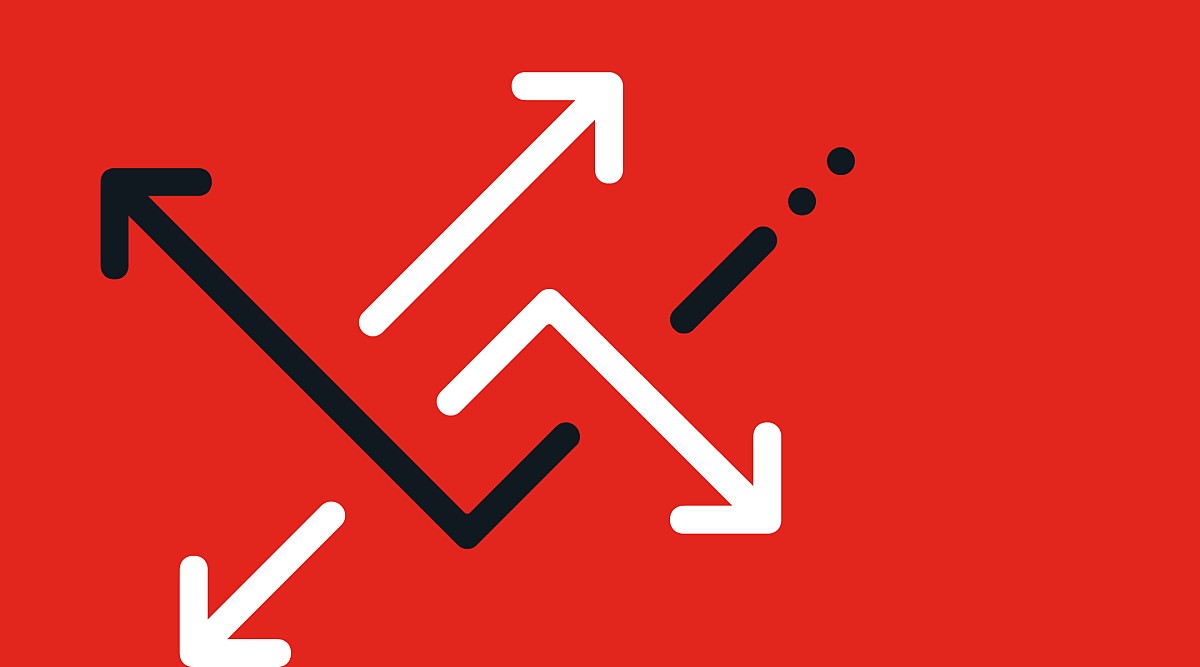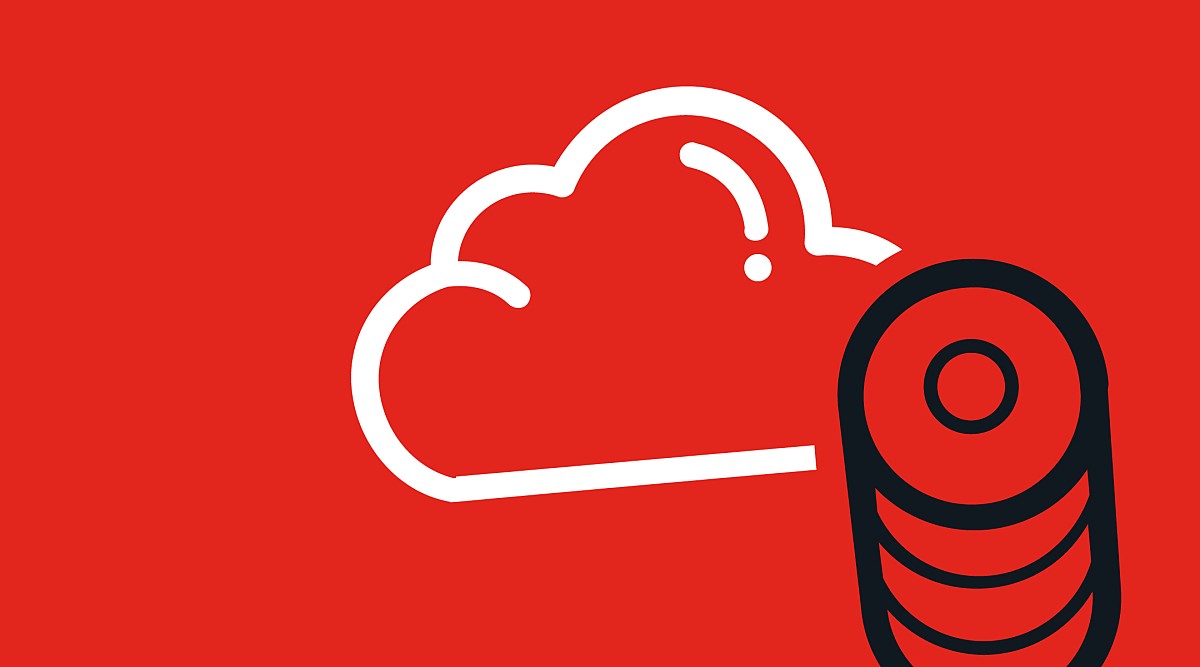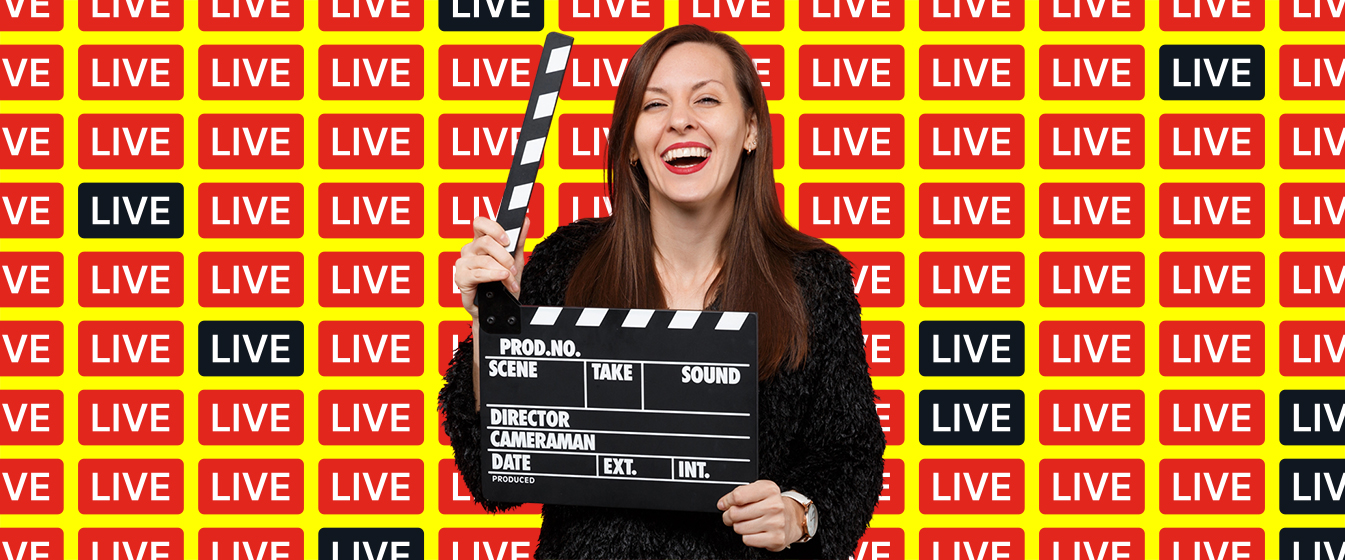Blog: Event management
15 Red flags to look for when choosing an event tech provider
17 July 2025 minute read

From registration platforms and virtual event software to analytics dashboards and mobile apps, event tech vendors can either elevate your event or derail it entirely. Choosing the right vendor isn’t just a tech decision; it’s a business-critical one.
Well-selected event tech enhances operational efficiency, improves attendee engagement and provides valuable insights through robust data management, supporting growth and innovation throughout your event portfolio.
On the other hand, a poor tech choice can lead to inefficiencies, frustrated staff, disengaged customers and costly workarounds that drain resources. In extreme cases, it can seriously damage your brand and get people fired.
But with hundreds of tools on the market promising seamless integration, enhanced experiences, and other cool-sounding stuff, how can you separate the truly reliable from the sketchy? Here are 15 red flags every event manager should be cautious of when selecting an event technology partner.
1 Generic demos that are about them, not you
Tell me if this sounds familiar.
You ask for a demo of some event tech. A salesperson calls you up and asks you to talk about what you’re looking for and the pain points you need to address.
Then, a while later, a different salesperson shows you a demo of the product which is clearly the exact same demo they show to everyone, which in no way addresses your particular needs and use-case – despite the fact that you spent 30 minutes telling them all about your particular needs and use-case. In fact, it consists mostly of them doing a screenshare and reading out sales blurb you could have gotten from their marketing site.
Huge. Red. Flag.
If a vendor is this lazy at a stage when they’re actively trying to get you to give them money, just imagine how lazy they’ll be after they’ve got your money and you need them to do something difficult in a hurry.
Remember, you’re looking for a partner who listens to your needs and actively proposes solutions to your problems – not just a vendor who wants to sell you what they’ve made and then move on to the next sale.
2 They won’t give you the keys before you buy
Most of us are pretty careful with our purchasing decisions. We watch trailers before we see movies. We spray on perfume samples before we buy a whole bottle, and we try out beds and mattresses before taking them home.
Interestingly though, some event tech providers are reluctant to give prospective customers an extended trial of their platform before they sign a contract.
This, I fear, is another signal that all is not well.
If they want you to decide, purely on the strength of the demo they showed you, and they’re not comfortable letting you poke around on your own, that screams of a lack of confidence in the usability and intuitiveness of their product.
They’ve led you through the good bits and made it look easy. Now they’re worried that, if you spend time trying to do stuff by yourself, you’ll find that unguided experience to be confusing and frustrating. Basically, they’re worried you’ll hate it.
Always, always get an extended free trial of any even tech you’re considering, and take the time to recreate some of the most important tasks and workflows you expect to use it for. Get the team involved and really try-before-you-buy.
3 Access to developers and product specialists
Event workflows can be complicated and nuanced. Every event team is looking to resolve their own individual challenges. So, in the course of evaluating and choosing the right provider, things can get a bit technical.
This is why it’s vital you have the chance to ask questions of the engineers and developers who can tell you exactly whether what you need is possible, and exactly how your services will work in practice.
Salespeople are great, but they tend not to know a lot about how their product works under the hood. Plus, their whole raison d'être is to sell you their product, so they will sometimes say things like ‘that won’t be a problem!’ when what they really mean is: ‘I don’t know what you’re talking about, but I get commission!’
Any good provider will be happy to spend as much time as it takes to fully understand your needs and be totally clear about how their solution would meet them.
Whether your questions are about custom workflows, how web sites are built, cybersecurity, email deliverability or native integrations, if they won’t let you speak to a member of the team who actually build and maintain the product, walk away.
4 Excessive focus on shiny new stuff like ‘AI’
This year it’s AI. A couple of years ago it was gamification. Before that it was something else.
Some tech vendors are always touting the next big thing. But experienced event planners know that, before they worry about robots and scavenger hunts, they need robust, configurable registration systems, impressive websites and robust digital marketing tools to actually fill seats in the first place.
Shiny doesn’t guarantee quality or a good fit for your events and your organisation.
Don’t be distracted by the latest big trend. Most events have little or no use for AI at this point, and most of the ‘AI’ being pushed by event tech companies isn’t actually AI (it’s a few algorithms and maybe a bit of machine learning).
Focus on what matters to your team and your events and get vendors to speak to those core competencies before they try to dazzle you with some shiny things they cooked up, probably during the previous six months.
Keep your own needs and priorities front-and-centre and concentrate on suppliers who can meet those needs extremely well, with a strong track-record of delivery and battle-tested systems.
5 No-one comes from an events background
Surprisingly, the event tech space is full of entrepreneurs who’ve never organised an event in their lives.
This means they’ve developed products, written code, built infrastructure etc with practically no insight into how any of it might be useful in real-life. They’ve made a series of guesses and assumptions (some of which may well be sound) but they lack the perspective of a user of event technology.
Of course, event tech providers need engineers to build their products, and not everyone needs to have a background in events. But some of them do. So, find out who on their leadership and product development teams have actual experience of planning, executing and marketing events. If the answer is ‘no one’ expect problems.
A good rule of thumb here is to observe whether everyone you meet is wearing a Patagonia gilet – the global uniform of the tech bro.

6 Inadequate support
If you run an event technology company, there are essentially three things you spend money on:
Product development
Customer support
Sales and marketing
Guess which one lots of vendors cut to the bone to maximise profits in the short-term?
Some of the biggest event tech providers have some of the worst support.
Even the best tech breaks or needs troubleshooting. If a vendor doesn’t offer clear, accessible, and responsive support, you risk delays or failures during critical event moments.
Make sure you understand a platform or provider’s support structure, and only sign with companies where you can pick up the phone and talk to someone.
Test their support early. Send in help requests and call them up during your evaluation and track how long they take to respond.
7 Overpromising and underexplaining
If a vendor promises that their platform can ‘do everything’ but they struggle to provide technical clarity or detailed demonstrations, be suspicious. Overpromising is rife in the event tech market and it’s often a tactic used to mask limitations or gaps in functionality.
Always insist on a live demo tailored to your use-case. Ask specific questions about features and be on the lookout for vague or evasive answers.
If you ask ‘can I automatically offer differentiated pricing and registration journeys to customers based on their email domain?’ and you get an answer like ‘sure, it does that’, dig deeper. Ask the salesperson how that works in practice. Ask to see the configuration settings and ask to see it working.
Sadly, bullshit’s a lot cheaper than hiring software engineers.
8 Limited integration capabilities
Event managers typically rely on a tech stack – not one standalone tool. If a vendor’s platform doesn’t integrate deeply with popular CRMs, email marketing platforms, accounting or business analytics tools, you could be left floundering around in a sea of manual workarounds, data silos, and inefficiencies.
Verify that the vendor offers integrations or API access for the tools and platforms you already use. If they can’t put you on the phone with someone who can explain the specifics of how they’d go about connecting their service to your existing solutions, chances are it will be a nightmare.
9 Opaque or complicated pricing
Stephen Hawking once remarked that, while he would happily spend all day demonstrating how the temperature of radiation given off by a black hole that is not rotating is inversely proportional to the black hole’s mass; Cvent’s pricing remained a total mystery to him.
He didn’t say that, but if you’ve ever tried to get clear pricing from a legacy event tech vendor, you’ll know what I’m talking about.
A lot of event technology is frankly a rip-off. There, I said it.
Confusing pricing structures – especially ones filled with hidden fees – are a sign of trouble to come. If you get a quote and later find out that basic category benefits (like analytics or custom branding) are extra, the vendor may not be transparent and you might end up resenting them for wrecking your budgets and generally being nasty and grasping.
Get a full breakdown of all costs upfront. Ask about things like overage charges (total rip-off) the number of seats / user limits, and licensing terms. Is there a fee per-event or per-registration or both? How much is it to add your own domain? What kind of training is included? How predicably does pricing scale with event size?
Watch out too for aggressive multi-year commitments. Literally every single week we speak to at least one new client who gravely regrets signing a three-year deal with their old provider, whom they now hate.

10 The platform is old and clunky
There are hundreds of event tech providers out there. Some are cutting edge. Others are cutting corners and have been for years.
Typically, there are two main reasons you’ll see event tech providers who haven’t improved their product in a decade or so.
The first is that they ran out of investment and no longer have any resources to continuously develop the product. They now have a roadmap bigger than that of São Paulo (but no money for cab fare).
The other common reason is they got acquired by another tech provider or venture capital firm. The founders took the money and ran. Now whatever’s left is little more than an exercise in cost-cutting. Fire the developers, fire the support team, hire more salespeople.
There, that’s saved you a year of your life and $50k to get an MBA!
How do you tell what you’re looking at? A clunky or outdated user interface can be a sign of an aging product. Modern SaaS solutions prioritise user experience with intuitive designs and responsive interfaces.
If the application requires manual workarounds or relies heavily on spreadsheets, that’s a bad sign right off the bat. Modern platforms should be capable of delivering even the most complex registration and marketing functionality directly from the cloud, using a single-source-of-truth (ie one dataset for an attendee, prospect, presentation etc, that every part of the service can use).
Ask when the platform was originally built. Ask when the most recent significant update was done, and what that fixed or added to the service. Above all, your common sense (maybe even your Spidey Sense) and think about whether the software feels easy and reassuring to use compared with the other SaaS tools you have in your life (Slack, CRMs etc).
If it looks past its sell-by-date, you’re probably heading for a world of pain.
11 Lack of flexibility
Event planners need adaptable solutions, not rigid systems with narrow constraints. You don’t need it to do what it does. You need it to do what you need it to do.
In an ideal world, event tech would adapt to every client’s needs. In reality platforms must strike a delicate balance between flexibility and functionality. This involves making choices about features and customisation options.
Some platforms were architected such that they only really work in a single, monolithic, linear way – the way the developers envisioned it should work.
Others (like AttendZen) are designed from first principles to be highly modular, flexible and configurable – to take account of the wide range of very different types of events, team workflows and integrations that are out there in the world.
Here it’s important to understand the difference between configuration vs customisation.
You want technology which can be endlessly configured to adapt to and support the precise workflows that you, your team, customers and stakeholders require to do great events.
You almost certainly do not want to spend years and tens (if not hundreds) of thousands of dollars having your tech supplier completely re-build whole sections of their product to suit your particular needs, in the name of ‘custom development work’.
Make sure you’re clear from the beginning: how much of what you need can be achieved within the existing, tested platform – just by changing settings, creating rules, using logic and adjusting templates. If any new code has to be written, be clear about how that will be deployed and tested (and who’ll be paying for it).
12 Development transparency
Choosing the right event tech partner should be viewed as investing in a long-term relationship.
So, it’s important to know, not just where they are now, but where they’re going – in terms of the features and functionality they plan to add in the months and years ahead.
If the vendor can’t speak to where the platform is headed, you could end up stuck with stagnant technology while competitors innovate. Vendors should have a clear vision and a commitment to regular updates and feature rollouts.
Ask to see a product roadmap or hear about recent feature releases. Find out how frequently updates are deployed and how the vendor incorporates customer feedback into their development prioritisation process.
13 White label branding
Your event should reflect your brand, not your vendor’s. If the tech doesn’t allow for custom branding, custom domains, or layout flexibility, it might result in a disjointed experience for attendees.
Get into specifics. Ask for examples of branded experiences and find out what limitations exist. Check if you can use your own domain, colours, logos, and messaging throughout.
How much can you edit and control? For example, is it just marketing emails or can you brand and edit transactional emails from the platform too?
What mechanisms are in place to make sure your branding is consistently applied across all digital touchpoints – so that different team members don’t send out slightly different-looking emails etc.
And if the platform vendor wants to charge you an additional fee just for the privilege of taking their brand name off your event website and emails, think about who you’re getting into bed with.
14 Control over event data
A vital but often ignored consideration for event planners procuring tech is the data ownership model. The big questions are: who owns the event-generated data and how it’s handled.
Most event tech vendors act as data processors, keeping clients as the sole data controllers. This means clients have full ownership and control of attendee data.
However, some vendors use a shared data ownership model, requiring attendees to become platform users to access an event, making the vendor a data controller also. You probably want to be worried about that.
Then there are ticketing platforms like Eventbrite which straight-up own your customer and will market competing events to them from other organisers, even before they’ve finished registering for yours.
Get clarity up front. Does the vendor act as a Data Processor or do they act as a Data Controller. Ask for a copy of their Data Processing Addendum (which should be a component of any contract or service agreement they would ask you to sign).
Check what provisions they have in place (how are suppliers vetted, how is staff access to your data provisioned, where is the data hosted etc).
Also ask to see what tools are built into the platform itself to support you in staying compliant with GDPR, CCPA, and other data privacy regulations.

15 Unclear onboarding and training process
Even the most intuitive platforms have a learning curve. A vendor that doesn’t provide structured onboarding or training resources is likely to leave your team struggling, increasing the risk of adoption failure or worse, mistakes during live events.
Request a timeline of the onboarding process, training documentation, and whether live training sessions are included (they absolutely should be).
When we speak with clients who had issues with their previous vendor not being able to support a particular task or workflow, 50% of the time their old platform could have done the thing they needed. But no one took the time to train and support them on how to use it.
Bonus red flag: they can’t say ‘No’
This one’s a bit counter-intuitive, but a vendor who never says ‘no’ may be just as troubling as one who’s too limited in the scope of their offer. Why? Because it usually means they’re not being realistic, or they’re stretching the truth (or both).
A good tech provider knows their boundaries and is honest about them. Over-accommodation can lead to missed deadlines, broken promises, and poor execution.
So there you have it.
Choosing an event tech vendor is more than picking a software platform – it’s choosing a partner in execution. In the high-pressure world of event planning, even minor glitches can turn into PR disasters.
By watching out for these red flags, you can avoid poor partnerships and ensure your event tech supports – not sabotages – your goals.
Always trust your instincts, but back them up with due diligence. Ask hard questions. Demand clarity. Your event’s success may depend on it.



